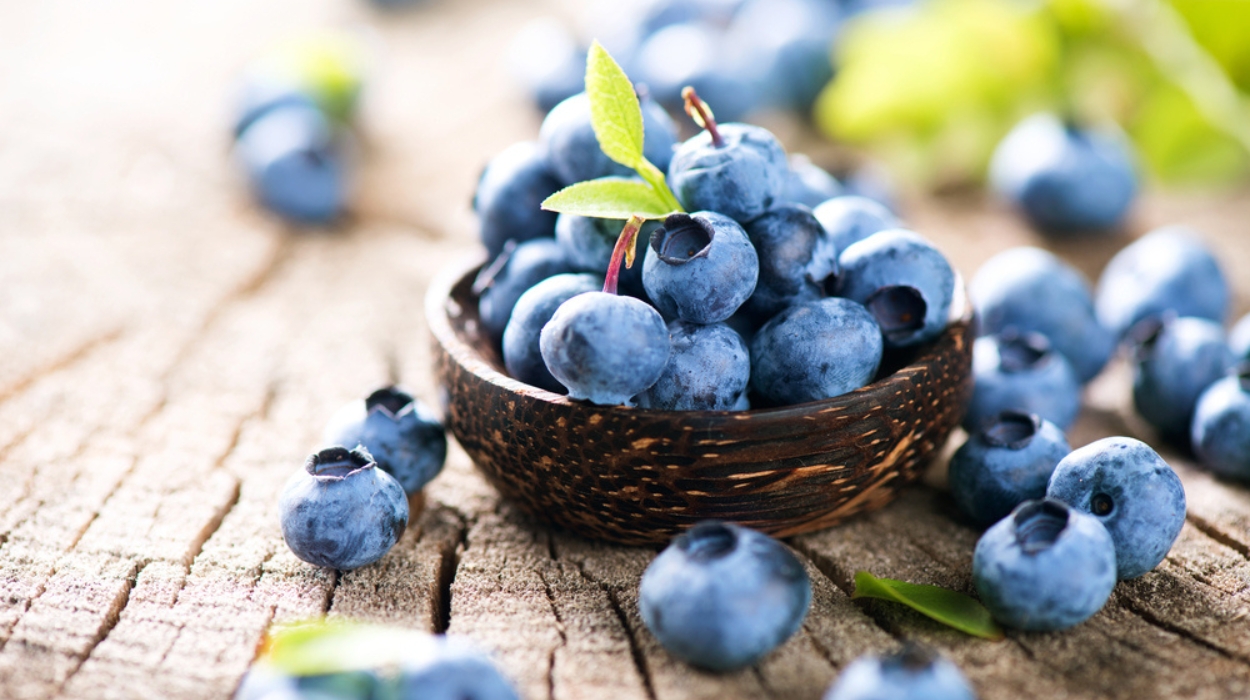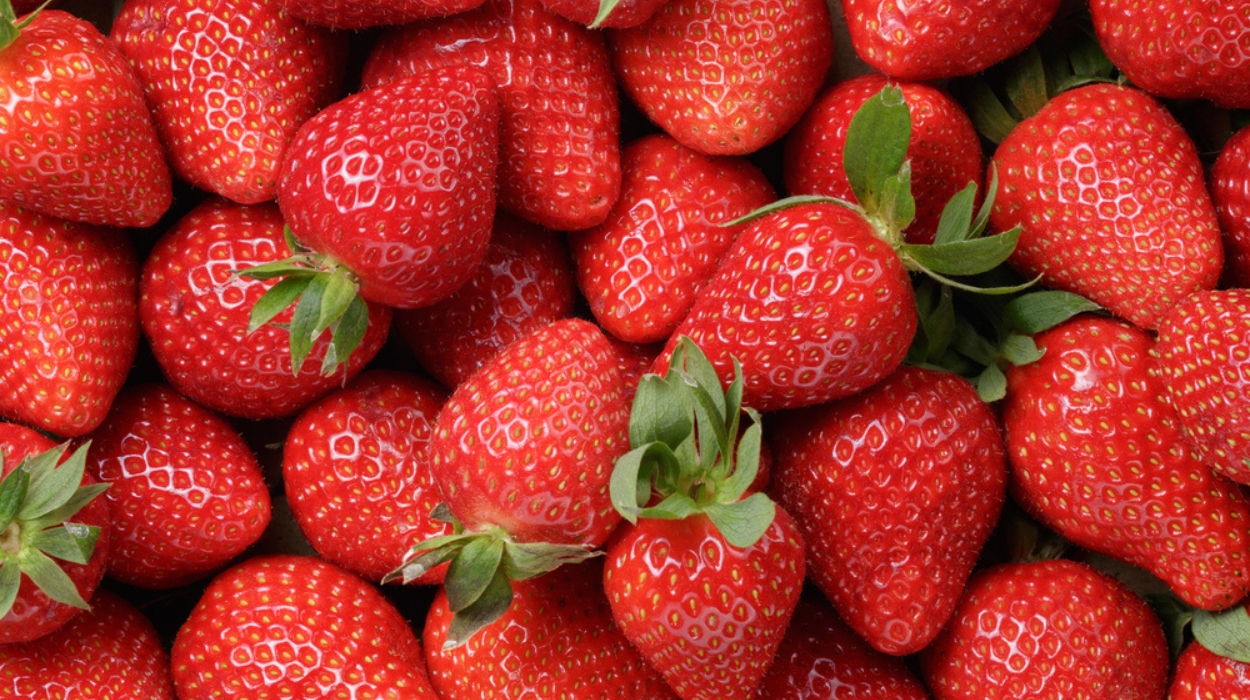Berries are one of the tastiest and healthiest foods you can eat that can reduce the risk of heart disease. It is high in antioxidants which help to fight cell damage.
Berries are colored by various plant pigments. The flavonoid anthocyanin is present in several of these pigments. The skin, seeds, and leaves of the berry are all superior sources.
Due to its high vitamin, mineral, and disease-preventing nutritional content, experts concur that eating berries is a great method to reduce your chance of acquiring a wide range of age-related disorders.
Researchers at the Harvard Chan School[1] discovered that eating blueberries reduced the risk of getting Type 2 diabetes. Blueberries and strawberries contain anthocyanins, which can help people lose weight. Discover the benefits of berries in this article.
13 Berries Benefits
- Packed with antioxidants.
- Help you lose weight.
- High in fiber.
- Contain a boatload of folate.
- Keep mentally sharp thanks to anthocyanidins.
- Help manage and prevent diabetes.
- Prevent Parkinson’s disease.
- Reduce inflammation and prevent heart disease.
- Help with urinary tract infections.
- Maintain healthy bones.
- Lower blood pressure.
- Prevent Alzheimer’s disease.
- Keep your skin and eyes healthy.
13 Health Benefits Of Berries
In general, berries are becoming more popular as a source of compounds and nutrients that lower the risk of CVD. These include anthocyanins, flavonols, vitamins, and fiber. Clinical studies on healthy people, people with diabetes mellitus, dyslipidemia, metabolic syndrome, high blood pressure, or smokers show that berries reduce CVD risk factors, especially glucose, lipids, lipid peroxidation, and systolic blood pressure.
The main ways that berries may protect the heart are by stopping the production of free radicals, reducing the expression of inflammatory genes, stopping foam cells from forming, and increasing the expression of eNOS. These effects slow the progression of atherosclerosis and keep normal blood pressure and vascular function, and as you can see the evidence of the benefits of berries consumption is increasing every day.
Here are some of the health benefits of berries:
Packed With Antioxidants
Almost all berries have tons of antioxidants. Antioxidants help prevent sickness, and improve your skin and hair, making you look more radiant.
Help You Lose Weight
Because berries have few calories, you can consume a lot of them without becoming overweight. They are incredibly juicy because they have a lot of water in them.
High In Fiber
Berries are mostly water (85%), and the other 15% is mostly fiber, which is important for a healthy diet.
Contain A Boatload Of Folate
Folate is another name for vitamin B, which helps decrease cardiovascular risk factors.
Keep Mentally Sharp Thanks to Anthocyanidins
Berries’ colors are caused by anthocyanins. People think the colors can heal and protect, like by lowering the risk of heart disease and stroke.
Help Manage And Prevent Diabetes
Berries can aid in the prevention of type 2 diabetes since they have a low sugar content and are high in fiber and water.
Prevent Parkinson’s Disease
Consuming at least two servings of berries each week has been found in trials to reduce the risk of Parkinson’s disease by up to 25%, and in some males, by as much as 40%.
Reduce Inflammation And Prevent Heart Disease
Berries can help keep your heart healthy because they are high in vitamins and low in cholesterol.
Help With Urinary Tract Infections
Berries like cranberries, blueberries, and raspberries protect the urinary tract against infection by containing a chemical that helps fight bacteria.
Polyphenols are the pigments that give blueberries their unique color. They may also help keep your bones and teeth healthy.
Maintain Healthy Bones
Polyphenols are the pigments that give blueberries their unique color. They may also help keep your bones and teeth healthy.
Lower Blood Pressure
Researchers have found a link between eating blueberries and having lower blood pressure. This is because blueberries can increase nitric oxide production, which relaxes blood vessel walls.
Prevent Alzheimer’s Disease
Some research shows that polyphenolics, which are found in many berries, may help eliminate waste products that build up in the brain and make neurodegenerative diseases like Alzheimer’s worse.
Keep Your Skin And Eyes Healthy
Eating at least three servings of strawberries each week has been linked to a reduced risk of developing macular degeneration which causes blindness.
Types Of Berries
Strawberries, blueberries, blackberries, raspberries, and red, white, and black currants are all examples of berries that can be eaten. Strawberries prevent them from attaching to the lining of the urinary tract.
Strawberry is the most widely used berry. It is used widely in the food industry and is featured in many different types of baked goods, such as jams, ice creams, smoothies, pies, and cakes.
Blueberries

These berries’ deep blue color is helpful for more than just decorating sweets. The color is caused by a class of strong compounds known as anthocyanins.
Blueberries are high in flavonoids, which have been shown to promote heart health, stimulate the immune system, and lessen the risk of cancer and dementia.
These juicy sweets are delicious whether eaten frozen or fresh. Because of the water and fiber content, you can eat them without jeopardizing your diet. A half cup contains about 40 calories.
Epidemiological studies link moderate blueberry and/or anthocyanin intake to lower risk of cardiovascular disease, mortality, type 2 diabetes, weight maintenance, and neuroprotection. Blueberries’ anti-inflammatory, antioxidant, vascular, and glucoregulatory benefits are key health benefits. Blueberry phytochemicals may alter gut microbiota and host health. In addition, these factors affect degenerative diseases and aging.
Acai Berries
Acai berries, often called superfoods because of how full of antioxidants they are, have three times as many nutrients as blueberries.
Nutrients like those can prevent cell damage, which is a precursor to many diseases.
Acai berries have a high vitamin and mineral content. The berries also work as natural blood thinners by relaxing the blood vessels, and this has led to links to improved circulation and the prevention of blood clots.
Also, studies that look at the possible health benefits of acai berries have shown after six weeks of consumption, it led to a big increase in the total antioxidant capacity of plasma, less muscle damage from exercise, and a big improvement in the serum lipid profile. These results strongly support the idea that acai berry supplements are good for your health. This is mostly because acai berries have a high total polyphenol content and high in vivo antioxidant and cholesterol-lowering activities.
Avocado
The fact that avocados are also classified as berries is likely unknown to the vast majority of people, despite the fact that most are aware that avocados are fruits. The fact that avocado has exactly one seed accounts for the “single-seeded berry” moniker that has been given to this fruit.
Avocados have been linked to a variety of potential health advantages, some of which include enhanced cardiovascular health, digestion, and control of body weight.
You may use it as a substitute for mayonnaise in smoothies, on sandwiches, or sliced and put into a salad. Because one serving of avocado is equal to one-fifth of the entire fruit, I would ask that you not add too much of it.
Blackberries
Blackberries are rich in polyphenols, which may reduce the inflammation that fuels cancer and heart disease.
The berries may also improve how your small intestine absorbs sugar, making you less likely to get type 2 diabetes. The good thing is that you can eat them either fresh or frozen.
A cup of blackberries has 8 grams of fiber and about 2 grams of protein.
Additionally, each dose contains antioxidants, nutrients that support the brain, and half the required daily intake of vitamin C.
Strawberries

These tasty, heart-shaped fruits are loaded with antioxidants, fiber, vitamin C, and folic acid. Some of the health benefits of these berries include aging, managing blood sugar, lowering high blood pressure, and preventing the negative consequences of aging on the brain.
You can consume more than just the berry; it has been shown that the leaves can relieve joint pain and gastrointestinal discomfort.
Cranberries
Cranberries provide several health benefits. It has been said that eating raw cranberries regularly will improve the health of the immune system, the digestive system, and the urinary tract. They might also lower your risk of developing cancer, ulcers, and other degenerative conditions brought on by cell damage.
Take note of how much cranberries you eat because eating too much of them might cause gastrointestinal problems and kidney stones.
Elderberries
The benefits of elderberries, which are found on the same tree as elderflowers, are well known for boosting the immune system.
Elderberry syrup, tea, and supplements are said to shorten colds and lessen the respiratory symptoms that come with them.
The berries contain vitamins A and C and minerals like potassium, phosphorus, iron, and copper. Elderberries should never be eaten uncooked; the leaves can also be poisonous.
Goji Berries
Goji berries come from Asia and have been used in traditional Chinese, Korean, Vietnamese, and Japanese medicine for at least three hundred years. In the United States, dried versions are most frequently offered for sale as health foods.
In addition to iron and antioxidants, they include vitamins C, B2, and A. Eat them only when they are fully ripe. The unripe ones can be poisonous.
Raspberries
Raspberries are packed with vitamins and minerals that may protect your brain and fight many cancers. Even though each serving has 8 grams of fiber, it also has several antioxidants and phytonutrients that help fight inflammation.
They can aid in better weight management and type-2 diabetes. Raspberries have multiple health benefits, one of which is that the medicinal qualities in their leaves have been utilized for millennia to lessen the negative effects of pregnancy, such as nausea and vomiting.
Boysenberries
A hybrid fruit that combines raspberries, blackberries, dewberries, and loganberries, is a powerhouse of nutrients like fiber and vitamins.
Boysenberries, abundant in antioxidants like other berries, can help you keep a healthy brain and guard against cognitive aging, cell damage, and Alzheimer’s.
Nutrition Facts of Berries
Different berries have different nutritional facts. We will be looking at the nutritional value of three berries.
Strawberries
100 grams of strawberries have the following nutritional value:
- Sodium: 0% of the recommended daily intake
- 4% of one’s daily value of potassium
- Protein: 1% of the recommended daily intake
- 97% of the recommended daily allowance of vitamin C
- 2% of the recommended daily intake of iron
- Magnesium: 3% of the recommended daily intake
- Dietary Fiber: 8% of the recommended daily intake
- Carbs: 2% of daily value
Blueberries
Blueberries’ (100 grams) nutritional value is as follows:
- Sodium: 0% of the recommended daily intake
- Potassium: 2% of the recommended daily intake
- Protein: 1% of the recommended daily intake
- 16% of the recommended daily amount of vitamin C
- Iron: 1% of the recommended daily intake
- Magnesium: 1% of the recommended daily intake
- 5% of the recommended daily intake for vitamin B6
- Dietary Fiber: 9% of the recommended daily intake
- 4% of the daily value is from carbohydrates
Blackberries
Blackberries’ 100-gram nutritional value is as follows:
- Sodium: 0% of the recommended daily intake
- 4% of one’s daily value is potassium
- 2% of the recommended daily intake of protein
- 35% of the recommended daily intake for vitamin C
- Iron: 3% daily value
- Magnesium: 5% of the recommended daily intake
- 20% of the recommended daily intake of dietary fiber
- Carbs: 3% daily value
Risks
There are many benefits to eating berries. Still, people, especially those with diabetes, should be aware of one key drawback while deciding whether or not to nibble on this delightful fruit. Consuming an excessive amount of berries might cause dangerously low blood glucose levels.
Tips For Buying Fresh Berries
There are many things to remember when you want to buy and eat berries. Here are some tips on what to look for when buying fresh berries.
Blueberries
If you buy a lot of them in season (June to August), freeze them. Keep fresh berries in the fridge’s crisper drawer and wait to wash them until you’re ready to eat them.
Strawberries
To get the most antioxidants and the best flavor, choose completely red strawberries with no white spots anywhere on them.
Blackberries
Blackberries, like many other types of fresh berries, are only available during certain times of the year. Keep them in the refrigerator, and consume them within a few days.
Conclusion
Fresh berries are delicious, beneficial to your health, and good for you in many ways, especially for your heart disease and skin.
Adding them to your regular healthy diet can have a profoundly positive effect on human health.
Frequently Asked Questions
Blueberries enhance nitric oxide, which relaxes blood artery walls and lowers blood pressure.
Berries are high in fiber which can help aid weight loss.
Flavonoids, antioxidant plant components, are abundant in berries and have been linked to a reduced risk of developing heart disease.
Blueberries and strawberries will be kept for up to seven days if stored properly in the fridge. Blackberries, raspberries, and gooseberries, which are more delicate, can be eaten within three to five days.
The antioxidant levels, fiber content, and natural sugar content of black raspberries are among the highest of all raspberry varieties.
Elderberry, blueberry, raspberry, and cranberries, in particular, are useful against multiple infections.
There is some evidence that the natural antioxidant content of dark berries is higher than that of lighter-colored berries, with positive effects on reducing inflammation and weariness.
Although blueberries have been the focus of most human-controlled studies, other berries, such as raspberries, blackberries, and strawberries, also contain many bioactive chemicals that boost brain function.
 Expert's opinion
Expert's opinion
